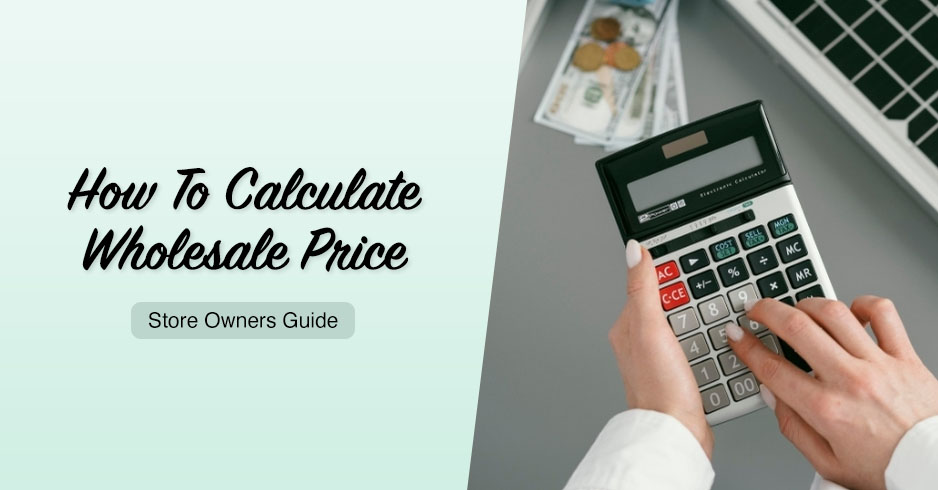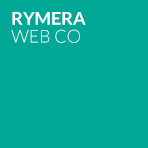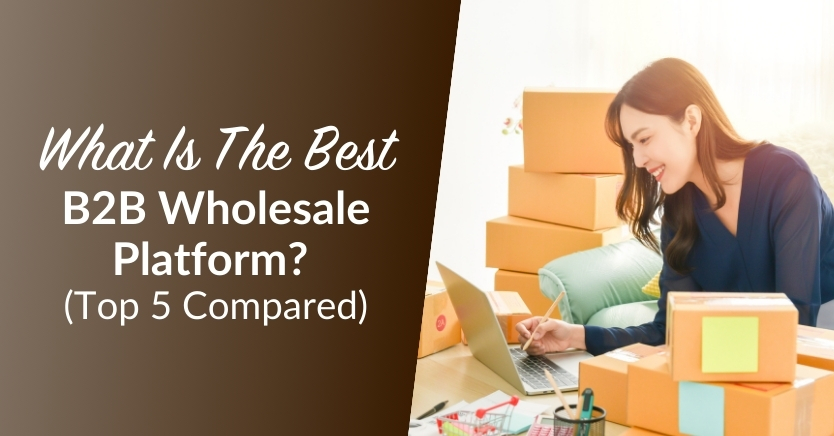
Selling wholesale is a lot more complicated than setting up an online retail store. Wholesale customers have an entirely different set of expectations and you need to use an e-commerce platform that can match them. Figuring out what the best B2B wholesale platform for those needs is can be a challenge.
There are a lot of wholesale e-commerce platforms and software that you can use to set up your store. However, each platform comes with a different set of features. Understanding what those features are is key to choosing the best B2B wholesale platform for your customers.
In this article, we’ll go over five of the best B2B e-commerce & wholesale platforms that you can use. We’ll discuss features, prices, and when to use each of them. Let’s get to it!
1. Wholesale Suite for WooCommerce
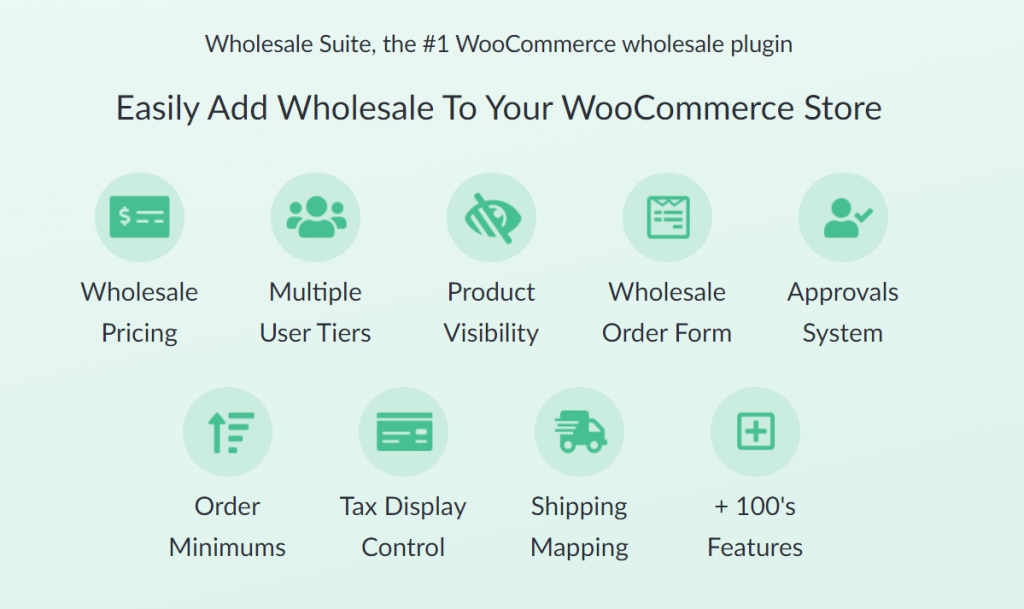
Wholesale Suite is a collection of three plugins that add a broad range of wholesale features to WooCommerce. Out of the box, WooCommerce is geared towards retail e-commerce operations. However, these three plugins add all of the wholesale functionality that you might need.
Let’s break down what each of the three plugins in Wholesale Suite do:
- Wholesale Prices Premium: This plugin enables you to add multiple custom wholesale user roles to your website. Then you get to set specific wholesale prices for each of those user roles.
- Wholesale Order Form: Using this plugin you can streamline your WooCommerce shop page and offer a more wholesale-friendly experience. Customers will be able to order in bulk, browse your entire catalog with ease, and more.
- Lead Capture: This plugin enables you to create custom wholesale user registration forms. You also get to approve registrations manually or automate the process.
Wholesale Suite uses a modular approach that lets you choose the plugins and features that you want to implement. At its core, you have Wholesale Prices Premium. With this plugin, you’ll be able to transform your WooCommerce website into a full-blown wholesale operation.
You can even use a free version of the Wholesale Prices plugin, which enables you to set up a single wholesale user role, which can be enough for a lot of stores. That makes Wholesale Suite the best B2B wholesale platform you can use.
Wholesale Suite costs $148.50 for a yearly license. However, you can also purchase each of its components separately if you don’t need access to the entire suite.
2. Shopify
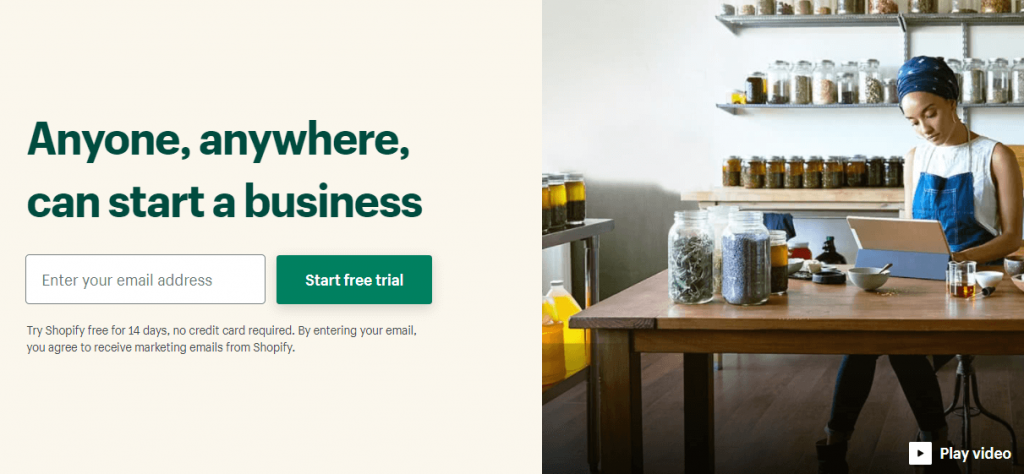
Shopify is one of the most popular e-commerce solutions for small businesses due to its ease of use. The platform makes it easy to create basic stores and publish products. That applies even if you don’t have any experience with web development.
Besides being a great option for small businesses, a lot of large companies such as Kylie Cosmetics and Red Bull use Shopify because it can handle large influxes of customers. However, despite its popularity among retailers, the platform isn’t designed for wholesale operations.
You can add wholesale features to your Shopify store using apps, though. There are a lot of Shopify apps designed to help you run wholesale operations. You have options that enable you to set wholesale prices and manage B2B customers.
One downside of these apps is that they mostly work on a subscription basis. That means if you want to use this platform for a wholesale store, you’ll end up paying for multiple subscriptions on a monthly basis.
To give you a cost estimate, Shopify plans start at $25 per month. However, with that plan, you pay 2.9% + $0.30 for every transaction that you make through their payment processor. If you want to use other processors, Shopify takes a 2% cut. Apps in general also start at around $20 per month, which means costs add up fast.
3. QuickBooks Commerce
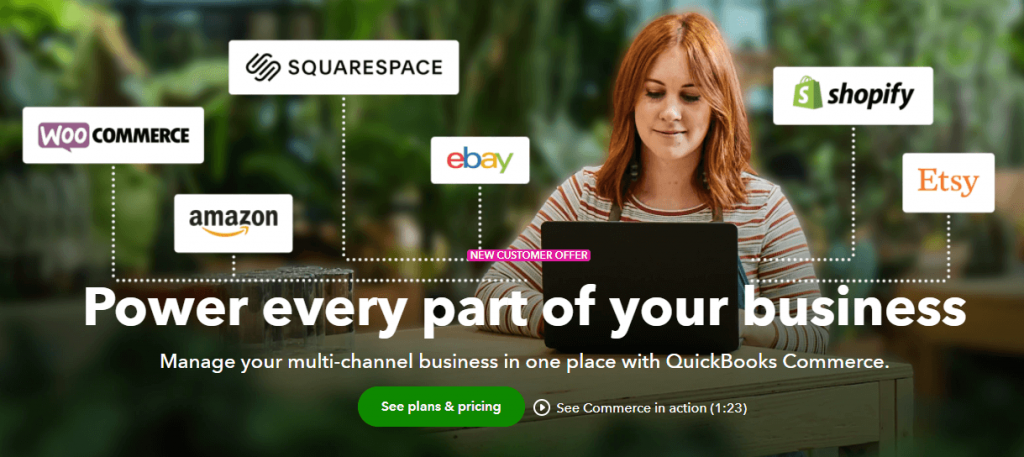
These days, the QuickBooks brand isn’t just about accounting. A year ago, QuickBooks purchased an inventory and order management company called TradeGecko. They took their product, added sales functionality to it, and rebranded it as QuickBooks Commerce.
QuickBooks Commerce is a B2B e-commerce & wholesale platform that integrates with a lot of third-party services. You can use QuickBooks Commerce to connect your store with Shopify, WooCommerce, and even Fulfillment by Amazon.
That approach enables you to combine some of the best features for each platform to provide a fantastic wholesale experience to your customers. Moreover, you also get access to in-depth analytics, invoicing functionality, and more. QuickBooks Commerce plans start at $15 per month.
4. WP Forms or Formidable Forms
If you want to stick with a simple WooCommerce store instead of using a full-blown wholesale platform, there are ways to make that work. For example, you can use plugins such as WPForms (one of our favorite contact form plugins) or Formidable Forms to set up manual wholesale order forms for your store:

Both of those plugins enable you to add payment functionality to your order forms, which means they’re perfect for e-commerce integration. If you want to opt for this approach, we recommend that you enable product catalog mode in WooCommerce:
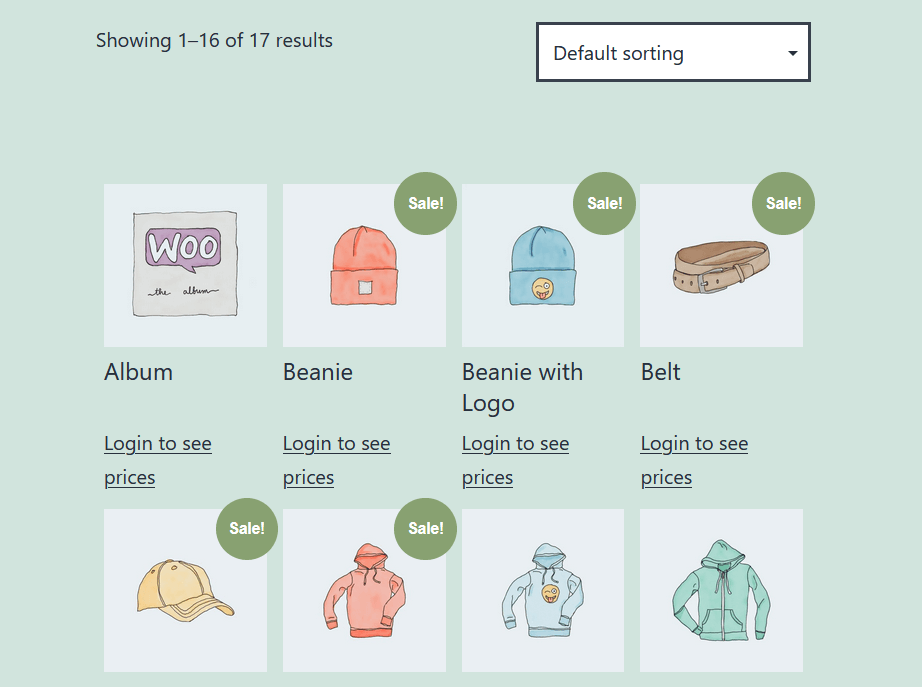
With product catalog mode, you can show prices to wholesale customers only. If they want to make a purchase, they can use a wholesale order form that you set up for that purpose.
Although this approach works well on a budget, it’s not particularly user-friendly or efficient. That is because you’ll need to process each purchase order manually instead of letting WooCommerce handle the checkout and payment processing steps.
If you want to stick with WooCommerce, your best bet is to use wholesale plugins instead. With Wholesale Suite, you can easily set up a wholesale store that doesn’t require as much micromanagement.
5. Spreadsheets or PDFs
Old-school wholesalers used to run entire online operations using spreadsheets and product catalogs in PDF format. It’s a basic approach that works, but it doesn’t offer a user-friendly experience for your wholesale customers. Plus, this approach adds a massive amount of work on your end.
Product spreadsheets need constant updates and that applies in particular to wholesale operations. If you have customers ordering hundreds of units of multiple products, you’ll need to update your inventory in those spreadsheets every day or even more often.
Moreover, product catalog PDFs require a lot of work to update and edit. If you use a website instead, you can edit any product or update its details in a matter of minutes.
Although this old-school wholesaling approach is very budget-friendly, it’s not a good solution if you want to scale your business. If you intend to grow your wholesale operation into a serious business, then you need a website.
Conclusion
There are a lot of e-commerce platforms that you can use for your wholesale business. However, most e-commerce platforms and software aren’t built with wholesale projects in mind. Therefore, you need to find ways to adapt those platforms to the needs of your customers. This can make it extra challenging to find the best B2B wholesale platform for your business.
In this guide, we’ve reviewed the best B2B wholesale platform and other options you can explore. To summarize, let’s review them below:
If you’re looking for the best B2B wholesale platform, we recommend Wholesale Suite for WooCommerce. Using WooCommerce and WordPress means that you’re in full control of your website. Wholesale Suite also offers a massive range of features for wholesale stores and you can pick and choose which of its plugins to use.
Do you have any questions about how to choose the best B2B wholesale platform for your needs? Let’s talk about them in the comments section below!

